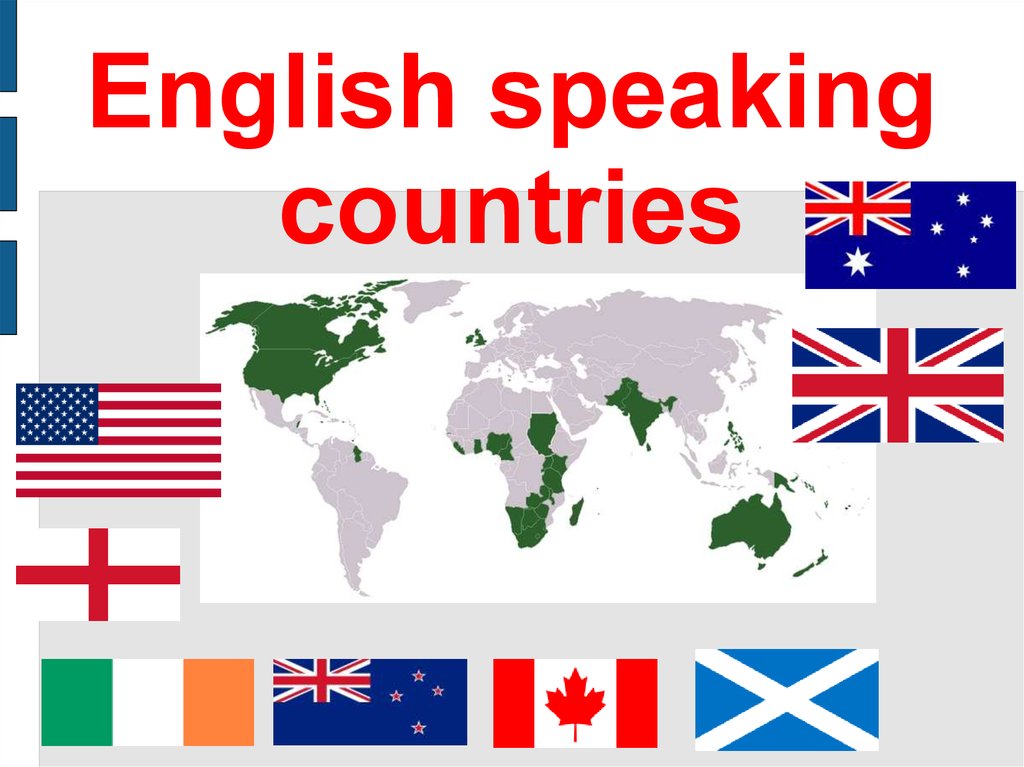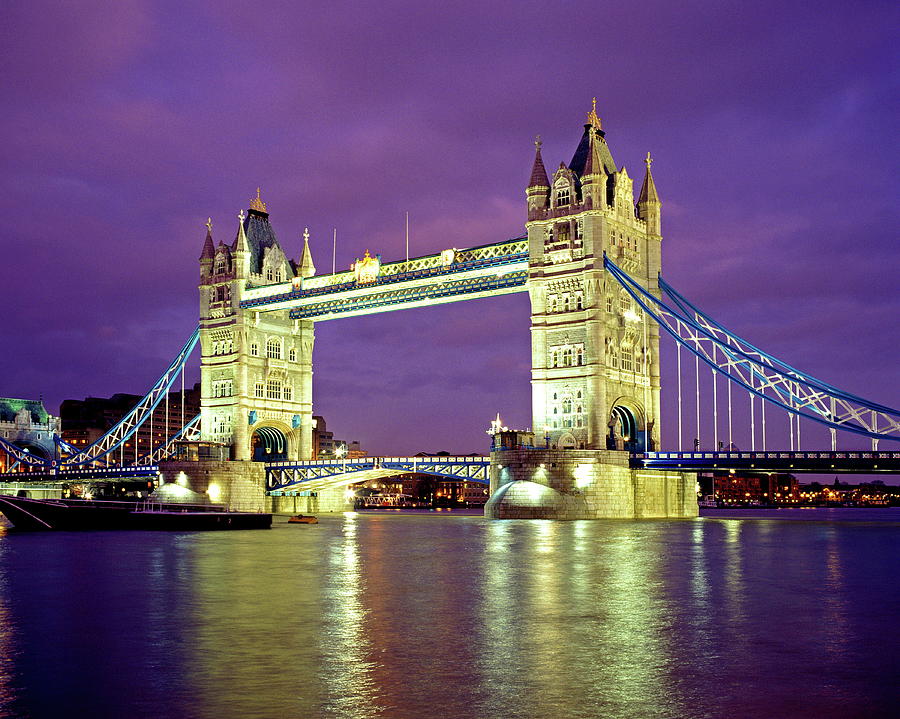English Speaking Countries You Can Travel To (2025 Update)
The United States is the biggest English-speaking nation, with an estimated 230 million native speakers, whereas the United Kingdom is estimated to have 60 million native speakers.
Author:Maya ReyesReviewer:Finn WildeNov 30, 20252.1K Shares431.6K Views

Most people link the English language with the two major English-speaking countries in the world: the United States and the United Kingdom. The United States is the biggest English-speaking nation, with an estimated 230 million native speakers, whereas the United Kingdom is estimated to have 60 million native speakers.
There are over 20 million native speakers in Canada even though it has two official languages. Australia has approximately 17 million native speakers, making it the second biggest English-speaking country.
The Republic of Ireland, South Africa, and New Zealand are three additional nations where English is the predominant language. An estimated 13 million individuals live in these three nations where English is their native language.
List Of English-Speaking Countries

Top 10 English Speaking Countries In The World 2020
As far as I know, there are about how many English-speaking nations in the world?
This is a tough one to answer since it all depends on who you ask. Fewer than a handful of nations have enacted laws requiring all citizens to speak English.
- Australia
- New Zealand
- Great Britain
- United States of America
However, the expansion of the English language began in the 16th century as a result of the British Empire's colonization of nations across the world. Over the next centuries, the English language expanded throughout the Middle East, Africa, Central, and South America, Asia, and Polynesia.
Dozens of nations have made English an official language because of this. English is the official language of 23 nations throughout the world, including the United States, the United Kingdom, and Australia.
- Antigua and Barbuda
- the Bahamas
- Barbados
- Belize
- Canada
- Dominica
- Federation of Saint Christopher and Nevis
- Fiji
- Ghana
- Grenada
- Guyana
- Ireland
- Jamaica
- Kenya
- Liberia
- Nigeria
- Papua New Guinea
- Saint Lucia
- Saint Vincent and the Grenadines
- Sierra Leone
- Singapore
- South Africa
- Trinidad and Tobago
Travel To These 5 English-Speaking Countries
1. Australia

Despite the absence of an official language, almost all Australians are fluent in English, making it the most widely spoken language in the nation. The Australian government is working to conserve the remaining aboriginal languages spoken throughout the nation.
2. Gibraltar
The British overseas territory of Gibraltar is situated near the southernmost point of Spain. In addition to English, Spanish is also widely spoken and is almost universal among the country's citizens. Expect - limestone cliffs, caves, and medieval fortresses.
3. Ireland

Over 40% of Ireland's population can speak Irish, a Celtic language that is spoken by 98 percent of the country's people. There are direct flights from Eastern Canada and the United States to Ireland in a little over five hours.
4. New Zealand
98% of New Zealanders regularly use English as their primary language of communication. Maori, the language of the island's indigenous inhabitants, is another possibility.
5. The United Kingdom
Although the United Kingdom's ability to communicate in English is taken for granted, it deserves to be included on this list. All four of the United Kingdom's member states England, Scotland, Wales, and Northern Ireland are easy to get about as tourist destinationsfor native English speakers. Gaelic and Welsh are two examples of minor languages spoken in the United Kingdom.
There Are Some European Countries Where English Is Widely Spoken
Many Europeans are fluent in English, however certain nations have far greater rates of competence than the rest of the continent.
The following is a list of the ten English-speaking European nations where doing business in English should be easy.
The list is not arranged in any specific order!
Germany
If you've ever wondered what it takes to be a successful German, you've come to the right place!
As a result, it should come as no surprise that they are fluent in English, the most widely used business language in the world (62.35 percent of the population speaks it).
Sweden
The Swedes aren't far behind the Dutch in terms of proficiency. You shouldn't have any problems communicating in English in Sweden, where the competence rate is 70.40 percent.
Finland, Denmark, And Norway
The Scandinavians may not appreciate this, but when it comes to English competence in Europe, this area is easily the greatest on the continent.
While Sweden's record of 70 percent is certainly impressive, the proficiency rates in all of these nations range from 65 to 69 percent.
Belgium
Anyone who has been to Brussels and knows that it is the EU capital, as well as a multilingual nation, it sits in should have no problem learning a new language from the people of Belgium.
According to the Belgian government, 61.58 percent of Belgians are proficient in English.
Poland
For the former Eastern Bloc nations, Poland stands out as a shining example of its attempts to raise the English proficiency of its citizens.
To put it another way: Poland is right up there with nations like the United States and the United Kingdom that have been using English for considerably longer than Poland
Conclusion
A list of some of the most important nations that have either a de jure or de facto official language in English is provided below. The nations have been arranged according to their location on earth. A country's official language is defined as the language used by its population when interacting with the government.
Although English is the most often spoken native language in many of the nations mentioned, it should be noted that English is not the only official language in those countries.

Maya Reyes
Author
Maya Reyes’s wanderlust was sparked in the temples of Luang Prabang, where the scent of lemongrass and the chants of monks revealed the transformative power of travel.
Since then, her journey has been defined by cultural immersion and authentic connections. From learning batik in Indonesia to sharing meals with nomadic families in Mongolia, Maya seeks experiences that highlight the human stories behind each destination.
Travel for her is a way to weave her narrative into the world’s cultural tapestry, creating bridges across diverse ways of life. Maya has traveled to 15 countries and shares her insights through writing and storytelling.

Finn Wilde
Reviewer
For Finn Wilde, the wilderness is more than just a destination - it’s a way of life. Over the past decade, he has led multiple expeditions in some of the world’s most remote regions, from the icy fjords of Greenland to the rugged trails of Patagonia.
Finn emphasizes sustainability in all of his adventures, helping participants connect with nature while promoting responsible exploration. His expeditions inspire individuals to explore the great outdoors while fostering a deep respect for the environment.
Latest Articles
Popular Articles


